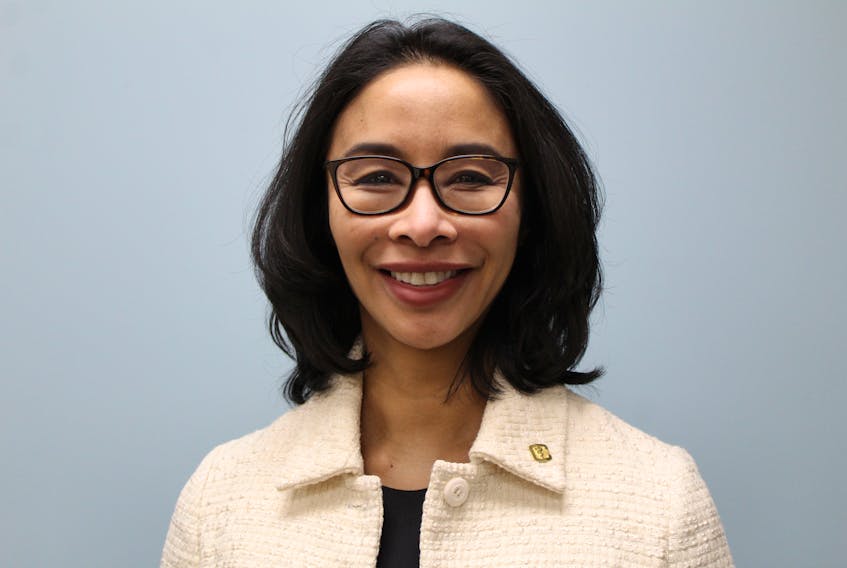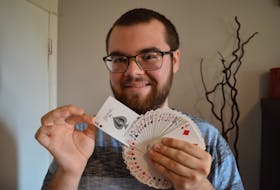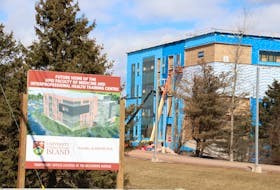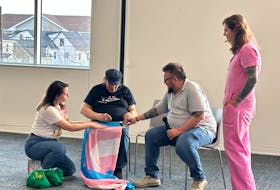ALBERTON, P.E.I. - An innovative pilot project at Western Hospital in Alberton has caught the attention of the Canadian Medical Association (CMA).
CMA president Dr. Gigi Osler is visiting the Island this week to take a first-hand look at Western’s tele-rounding project, which was launched in August.
“They’re doing a lot of these incredibly innovative things that you hear about across the country and it just seems to be consolidated in this one hospital and this one pilot project,” said Osler.
Tele-rounding is a virtual way for physicians to do rounds. There are nine physicians, including three based in P.E.I., who take turns doing virtual rounds and seeing all of Western’s patients who don’t have a family physician.
The physicians can see the patient on a screen. A nurse practitioner also has a digital stethoscope, so the physician can listen to the patient’s heart beat.

Tele-rounding was introduced by Maple, a telemedicine company based in Ontario.
Osler said part of her visit is to ask questions to find out what kinds of challenges Western has faced during the project.
“We want to find out how they did it, what did they find challenging, and what can we do to spread the word of what kind of work they’re doing here in P.E.I.,” she said.
Osler said the health-care system is still catching up to new technology.
“There’s all of this technology out there, yet we, in the health-care system, still use pagers, and we in the health-care system use faxes,” she said.
Osler said tele-rounding opens the door to investigate what virtual tours could mean for specialist care.
For example, if a patient has to see a specialist and there is no specialist in the area, the patient then needs to travel. But with a virtual way of seeing the doctor, it could eliminate the need to travel.
“If you had that technology in place you could take a picture of the rash, do a virtual visit with the specialist and then perhaps save a lot of the costs of having to fly people out of their community to centres where the specialists are,” she said.
Osler said the general population is interested in virtual health care, based on a study the CMA did in the summer.
“Seventy per cent of Canadians would be interested in doing virtual health care if they could access it and the majority thought it would help improve access and help make care more timely,” she said.
Osler is also visiting the Queen Elizabeth Hospital and other medical facilities to talk to physicians about some of the innovations there.
One medical licence for all
Osleris also discussing the possibility of national licensure across Canada.
Right now, a medical licence in one province does not transfer to another province.
Each province and territory has its own regulatory college and its own set of standards to license its doctors.
Osler said the CMA has been working with provincial medical associations to look at how to get a single medical licence for all doctors that is recognized nationwide.
“Doctors are very positive about it and I really think it can be one of those things that can help provide better access and better, more timely care for patients,” she said.
A single licence would mean more portability for physicians and locums, which is a physician who will take over another physician’s patients while they are away.
Osler said if locums from out of province come to P.E.I. then it may entice them to stay and be full-time physicians on the Island.
“You come here, you meet the patients, you see how friendly Islanders are, you see what the lifestyle is and then I think that becomes a recruiting tool in and of itself to attract people to some communities they might never have come to before,” she said.









